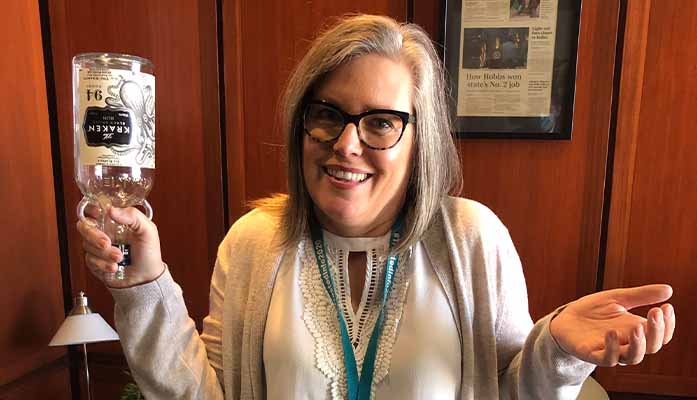
by Jonathan Eberle | Nov 30, 2025 | News
By Jonathan Eberle |
Amazon has agreed to pay a total of $2.5 billion in penalties and customer refunds to resolve a federal lawsuit alleging the company improperly enrolled users in its Prime membership program and made it difficult for them to cancel, according to a settlement announced on Sept. 25. The agreement stems from a 2023 Federal Trade Commission (FTC) lawsuit accusing Amazon of using deceptive design tactics—often called “dark patterns”—that allegedly pushed customers into Prime subscriptions without their informed consent. The company has repeatedly denied any wrongdoing but said it is settling the case to move forward.
According to court filings, $1.5 billion of the settlement will be distributed directly to Prime subscribers. Refunds will be capped at $51 per customer and automatically issued to eligible users within 90 days of the settlement taking effect. Those eligible for automatic payments include customers who were enrolled in Prime through specific online flows such as “Single Page Checkout” and similar enrollment pages between June 23, 2019, and June 23, 2025.
The FTC alleged that Amazon knowingly designed confusing interfaces that nudged or steered customers toward Prime subscriptions. The agency said internal documents revealed discussions among company executives acknowledging problems with both the enrollment path and the cancellation process. “Amazon created confusing and deceptive user interfaces to lead consumers to enroll in Prime without their knowledge,” the FTC said in its announcement. The complaint also accused the company of creating a “complex and difficult” cancellation process that impeded users’ ability to leave the service.
Under the settlement terms, Amazon must revise its user interface to ensure clearer options when customers are signing up for—or declining—Prime. That includes a requirement for a prominent ‘decline Prime’ button and more straightforward cancellation tools. In a statement released the same day, Amazon rejected the claims but said the agreement allows the company to avoid prolonged litigation.
“Amazon and our executives have always followed the law, and this settlement allows us to move forward and focus on innovating for customers,” the company said. It added that it works to make Prime enrollment and cancellation “clear and simple” and emphasized the value Prime offers to millions of subscribers worldwide. With the settlement now approved, Amazon will begin issuing refunds and overhauling portions of its checkout and subscription processes. Meanwhile, the company will pay the remaining $1 billion of the settlement as a civil penalty to the federal government.
Jonathan Eberle is a reporter for AZ Free News. You can send him news tips using this link.

by Jonathan Eberle | Nov 29, 2025 | News
By Jonathan Eberle |
Maricopa County officials are asking a federal judge to rein in what they describe as years of mission creep by the court-appointed monitor overseeing reforms within the Maricopa County Sheriff’s Office (MCSO), arguing that the agency has fully complied with the policy changes required under a landmark racial-profiling case.
In a new legal filing submitted last week in Sheridan v. Melendres—a case that began nearly two decades ago over civil-rights violations during traffic stops—Board of Supervisors Chairman Thomas Galvin and Vice Chair Kate Brophy McGee contend that the county has long met the terms of the court’s orders and that continued federal intervention is no longer justified.
The filing points to a central argument: since the court issued its first injunctive order, MCSO has undergone sweeping reforms, leadership changes, and years of federal scrutiny. “Since the issuance of the Court’s first injunctive order, fourteen years have passed, three new Sheriffs have taken office (from both political parties), MCSO has achieved 100% compliance with required policy changes, and there have been zero new allegations of targeted immigration enforcement by MCSO,” the document states.
At the heart of the county’s challenge is the work of federal monitor Robert Warshaw, who has overseen MCSO’s compliance efforts for nearly 15 years. According to the filing, Warshaw and his team have collected more than $30 million in fees during that time. County leaders say they have been increasingly frustrated with what they describe as an expansion of Warshaw’s role—particularly his recent “audit” of county spending related to the case. They argue that federal oversight was intended to ensure constitutional policing practices, not to scrutinize local budgeting decisions.
“In today’s legal filing, we highlight how far the federal monitor has strayed from his original charge,” Galvin and Brophy McGee wrote in a joint statement. “Digging into county finances and trying to minimize the cost of Melendres compliance is not just an insult to taxpayers, it’s beyond the federal court’s jurisdiction.”
County attorneys note that nothing in the county’s budgeting practices violates state or federal law. For that reason, the Board says it will not participate in further disputes over compliance-related costs. The county’s brief argues that questions about staffing, budgets, and administrative costs fall squarely within local authority. Citing Supreme Court precedent, the filing asserts that “federal-court decrees must directly address and relate to the constitutional violation itself.”
The county maintains that because MCSO has reached full compliance with all policy reforms stemming from the Melendres orders—including the creation of 209 positions tied directly to those requirements—the original purpose of the decree has been fulfilled. “It would be a complete waste of taxpayer money to engage the federal courts in a back-and-forth over what is clearly an issue of local jurisdiction,” the statement reads.
Galvin and Brophy McGee say the Board’s priority is protecting taxpayers and ensuring resources are directed toward public safety needs determined at the local level. The Board of Supervisors represents roughly 4.5 million residents. “We’ll keep standing up for transparency, common sense, and your right to self-govern,” they wrote.
The federal court will now determine whether the county’s arguments warrant narrowing or ending the monitor’s authority—a decision that could significantly reshape the long-running oversight of one of the nation’s most closely watched law-enforcement reform cases.
Jonathan Eberle is a reporter for AZ Free News. You can send him news tips using this link.

by Jonathan Eberle | Nov 25, 2025 | News
By Jonathan Eberle |
A new analysis from the Reason Foundation places Arizona 17th in the nation for unfunded pension liabilities, marking another chapter in the state’s long-running effort to stabilize its public retirement systems. According to the report, Arizona carried $27.3 billion in unfunded pension debt in fiscal year 2024. That figure represents a roughly $10 billion increase over the past decade—a rise that analysts say was expected as part of the state’s transition to reformed retirement plans.
Leonard Gilroy, senior managing director of the Reason Foundation’s Pension Integrity Project, told The Center Square that Arizona anticipated higher unfunded liabilities in the early years after adopting major pension reforms.
Arizona operates four major public pension systems: Arizona State Retirement System (ASRS), Public Safety Personnel Retirement System (PSPRS), Correctional Officer Retirement Plan (CORP), and Elected Officials Retirement Plan (EORP). While PSPRS, CORP, and EORP underwent substantial structural changes, ASRS—the state’s largest pension system—did not. As a result, ASRS now accounts for 70% of the state’s total pension liabilities and is the only major system whose funded status declined from 2014 to 2024.
Gilroy noted that taxpayers are responsible for about two-thirds of the state’s pension debt, with active employees covering the remaining one-third. However, he emphasized that recent reforms have led to a more equitable cost-sharing model between workers and taxpayers. Between 2014 and 2024, Arizona’s overall pension funded ratio improved slightly—from 72% to 74.3%. That means the state has roughly three-quarters of the assets needed to cover its estimated $106.6 billion in future pension obligations.
The improvement, Gilroy said, reflects a decade of “difficult reforms and difficult decisions,” including reducing investment return assumptions, paying down existing debt, and creating new retirement options for incoming public employees. A major turning point came in 2016, when lawmakers approved Senate Bill 1428, giving government employees hired after July 1, 2017, a choice between a traditional defined benefit pension and a defined contribution plan similar to a 401(k). The shift was designed to better match the modern workforce, which is less likely to stay in a single job for an entire career.
Arizona’s pension trajectory is improving, he added, but the state will need to maintain its reforms and continue meeting its investment return targets to keep progress on track. “If you put in the money now,” Gilroy said, “you save that money in the long run because you’re not trying to chase the problems of the past.”
While challenges remain—particularly within ASRS—experts say Arizona has a realistic path to achieving full funding if the state’s current course continues.
Jonathan Eberle is a reporter for AZ Free News. You can send him news tips using this link.

by Jonathan Eberle | Nov 23, 2025 | News
By Jonathan Eberle |
A new dispute erupted at the Arizona State Capitol on Thursday after Senator J.D. Mesnard (R-LD13), chair of the Senate Committee on Finance, accused Governor Katie Hobbs of misleading the public with an executive order tied to federal tax changes enacted earlier this year.
In a press release, Mesnard said Hobbs’ order directing the Arizona Department of Revenue to update state tax forms “blatantly misleads the public” by implying that her administration was delivering new tax relief. According to Mesnard, the changes she referenced were already established under H.R. 1, a federal tax reform package advanced by former President Donald Trump and congressional Republicans.
Hobbs’ order, he argued, does not create any new state-level reductions. “Middle-class families deserve honesty, not last-minute attempts to steal credit for others’ hard work,” Mesnard said, asserting that Hobbs was attempting to claim political ownership of reforms she opposed. He noted that Democrats in Congress uniformly voted against the federal tax package and that—despite the governor’s framing—the adjustments she cited are already federal law.
Mesnard also criticized the order on procedural grounds, calling it inappropriate for a governor to “direct” the Department of Revenue’s handling of state tax policy. He said such authority rests with the Legislature.
The senator added that Republicans plan to advance legislation next session to formally align Arizona’s tax code with the federal reforms and expand on them where possible. But he warned that Hobbs’ order could create “uncertainty and chaos” for taxpayers in the meantime.
Jonathan Eberle is a reporter for AZ Free News. You can send him news tips using this link.

by Jonathan Eberle | Nov 22, 2025 | News
By Jonathan Eberle |
Scottsdale’s popular Old Town Farmers Market will soon have a new home. The City Council voted on Nov. 17 to approve an agreement relocating the long-running Saturday market from its current spot at the city-owned parking structure at First Street and Brown Avenue to the surface lot at City Hall on 75th Street and Bennie Gonzales Way.
The shift comes as Scottsdale prepares to expand the parking structure that has hosted the market for more than a decade. The move will take effect at the start of the 2026–27 season. City Manager Greg Caton said city leaders worked to ensure the change would keep the market thriving with minimal disruption for both shoppers and vendors.
“The farmers market is one of Scottsdale’s most loved traditions,” Caton said. “Moving it to City Hall keeps it close to the heart of Old Town and gives vendors and visitors the space they need while we make improvements elsewhere. It’s a win for residents, small businesses and the community as a whole.”
Since its founding in 2009, the Old Town Farmers Market has grown into a weekly staple for Scottsdale residents, operating each Saturday from October through June. Roughly 100 vendors participate each week, offering fresh produce, baked goods, specialty foods, and locally made products in a lively, community-focused setting.
Officials say the new location will provide more room and easier access, allowing the market to continue offering the variety of goods and events that have made it a weekend favorite. Beyond its role as a shopping destination, the market has become a community hub—supporting Arizona farmers and food producers, drawing customers to nearby businesses, and accepting food assistance vouchers to help low-income families access healthy food.
The market also partners with Scottsdale’s Senior Services and plays a recurring role in major city events such as Western Week, Scottsdazzle, and June Days. Under the new agreement, the market will be permitted to operate on up to 40 Saturdays per year at the City Hall site. City staff noted the relocation will not require additional municipal resources or staffing.
Jonathan Eberle is a reporter for AZ Free News. You can send him news tips using this link.





